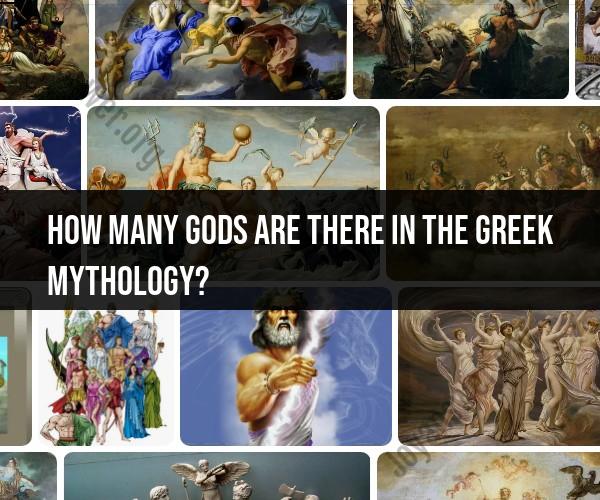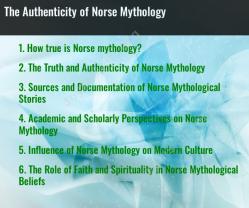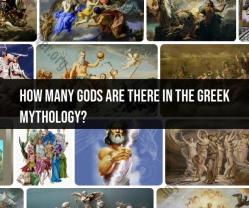How many gods are there in the Greek mythology?
Greek mythology features a vast and complex pantheon of gods and goddesses. While there are many gods and minor deities in Greek mythology, there are a total of 12 major Olympian gods and goddesses who are considered the principal deities on Mount Olympus. These major gods and goddesses are often referred to as the "Twelve Olympians." They are:
- Zeus - King of the gods, ruler of the sky and thunder.
- Hera - Queen of the gods, goddess of marriage and family.
- Poseidon - God of the sea and earthquakes.
- Demeter - Goddess of agriculture and the harvest.
- Athena - Goddess of wisdom, courage, and strategic warfare.
- Apollo - God of the sun, music, poetry, and healing.
- Artemis - Goddess of the hunt, wilderness, and childbirth.
- Ares - God of war.
- Aphrodite - Goddess of love and beauty.
- Hephaestus - God of blacksmiths, craftsmen, and fire.
- Hermes - Messenger of the gods, god of travel, commerce, and thieves.
- Dionysus - God of wine, revelry, and the theater.
These Olympian deities played central roles in Greek mythology and were associated with various aspects of human life and the natural world. However, beyond the Twelve Olympians, there were numerous other gods and goddesses in Greek mythology, each with their own unique attributes, domains, and roles. These lesser deities and spirits were often associated with specific locations, natural elements, or human activities.
Greek mythology is also rich with a multitude of heroes, monsters, and other mythical creatures. Many of these figures interacted with the gods and played important roles in various myths and legends.
So, while there are 12 principal Olympian gods and goddesses in Greek mythology, the overall pantheon encompasses a wide array of divine beings, each with its own significance in the Greek mythological tradition.
The Pantheon of Gods in Greek Mythology: How Many Are There?
The number of gods and goddesses in Greek mythology is difficult to determine precisely, as there are many different sources and traditions. However, the most commonly cited number is twelve, which refers to the twelve major deities who resided on Mount Olympus. These twelve gods and goddesses are:
- Zeus: King of the gods and god of the sky and thunder
- Hera: Queen of the gods and goddess of marriage and childbirth
- Poseidon: God of the sea, earthquakes, and horses
- Demeter: Goddess of agriculture and the harvest
- Athena: Goddess of wisdom, crafts, and war
- Apollo: God of the sun, music, poetry, and healing
- Artemis: Goddess of the hunt, the moon, and wild animals
- Ares: God of war and violence
- Aphrodite: Goddess of love, beauty, and pleasure
- Hephaestus: God of fire, metalworking, and crafts
- Hermes: God of messengers, travelers, and thieves
- Dionysus: God of wine, revelry, and fertility
- Hestia: Goddess of the hearth, home, and family
Exploring the Myriad Deities of Greek Mythology
In addition to the twelve major deities, there are also many other gods and goddesses in Greek mythology. These lesser-known deities often had more specialized roles and functions. For example, there were gods and goddesses of rivers, mountains, forests, winds, and even specific emotions and concepts.
Some notable lesser-known gods and goddesses in Greek mythology include:
- Eros: God of love and desire
- Nike: Goddess of victory
- Pan: God of the wild, shepherds, and flocks
- Hebe: Goddess of youth and cupbearer to the gods
- Hecate: Goddess of magic, witchcraft, and the crossroads
- Tyche: Goddess of fortune and luck
- Morpheus: God of dreams
- Iris: Goddess of the rainbow and messenger of the gods
- Nemesis: Goddess of divine retribution
- Thanatos: God of death
- Hypnos: God of sleep
Major and Lesser-Known Gods and Goddesses in Greek Myth
Both the major and lesser-known gods and goddesses in Greek mythology played important roles in the lives of the ancient Greeks. The major deities were worshipped and revered by all, while the lesser-known deities were often worshipped by specific groups of people or for specific purposes.
For example, farmers might worship Demeter, the goddess of agriculture, in the hope of a good harvest. Sailors might worship Poseidon, the god of the sea, in the hope of a safe journey. And merchants might worship Hermes, the god of commerce, in the hope of success in their business ventures.
The Stories and Roles of Greek Gods in Ancient Belief
The stories and roles of the Greek gods and goddesses in ancient belief are complex and varied. Some of the gods and goddesses were benevolent and helpful, while others were cruel and capricious.
For example, Zeus was often seen as a just and fair ruler, but he was also known for his temper and his many extramarital affairs. Hera was often seen as a vengeful and jealous goddess, but she was also known for her loyalty to Zeus and her protection of marriage and childbirth.
The stories of the Greek gods and goddesses were often used to teach the ancient Greeks about morality, ethics, and the nature of the world around them. For example, the story of Icarus warned the Greeks about the dangers of hubris, or excessive pride. The story of Pandora's Box explained the origin of evil in the world.
The Rich and Complex World of Greek Mythology's Deities
The world of the Greek gods and goddesses is a rich and complex one. The deities are complex characters with their own unique personalities, strengths, and weaknesses. The stories of the Greek gods and goddesses are full of drama, excitement, and adventure.
Greek mythology is a fascinating and enduring tradition that has had a profound impact on culture and literature throughout history. The stories of the Greek gods and goddesses continue to fascinate and inspire people today.




